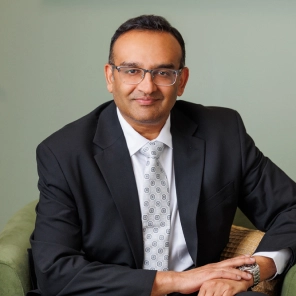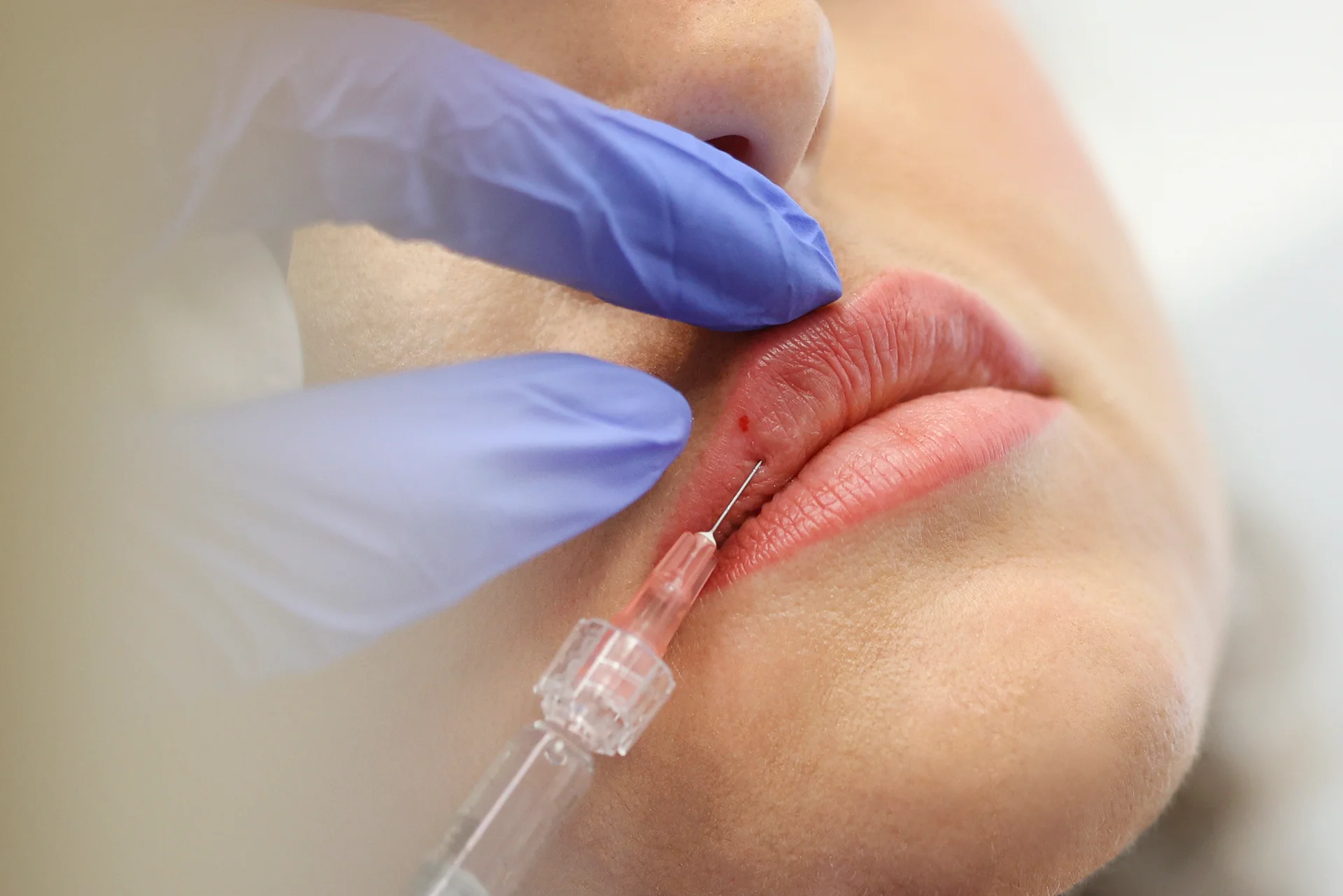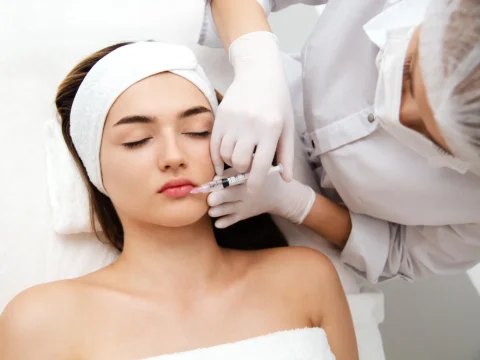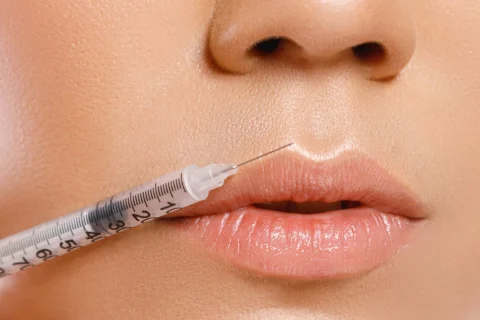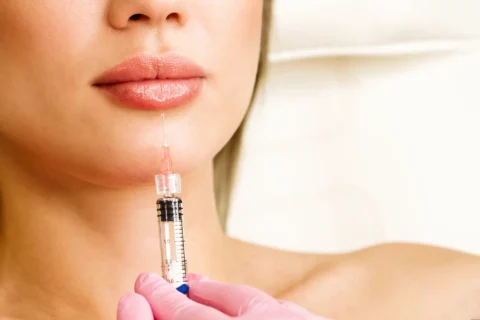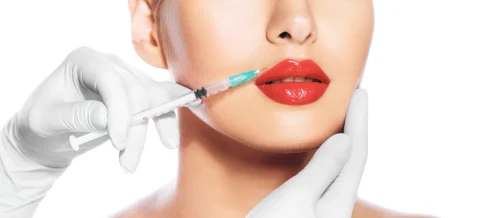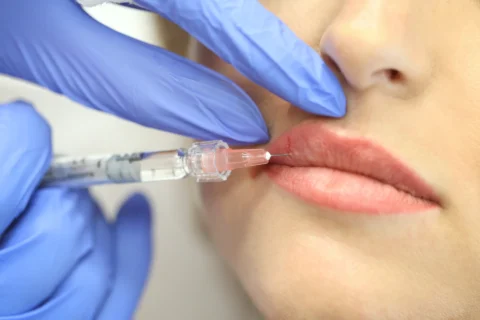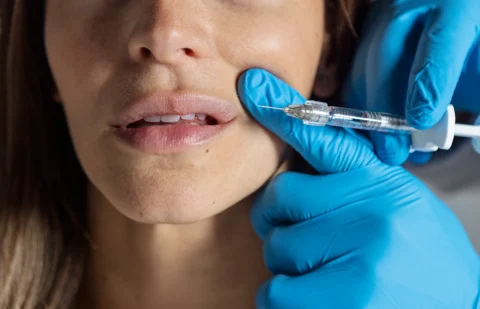We’ve helped hundreds of clients find sweet comfort after their lip injections.
Have your lips been hurting more than expected after your recent filler treatment?
Is this tenderness in your precious pout a sign something is wrong? Or is it merely temporary tightness and swelling as your lips adjust to their new plump shape?
While severe or worsening pain warrants medical care, mild to moderate tenderness often peaks at 24 hours and gradually fades over 3-4 days.
As experts in cosmetic injectables, we have seen it all when it comes to lip filler pain at Ethos Spa. Read on for what to expect, tips for relief, and when to seek help for your hurting lips.
Tired of post-filler discomfort? Ethos Spa prioritizes your comfort and peace of mind. Book now!
What Kind of Discomfort Should I Anticipate After Lip Fillers?
As the filler gel is injected, you may feel some pinching and pressure. Once the anesthesia wears off over the next 6-12 hours, it is normal to experience some swelling, redness, and slight irritation around the treated areas.
Based on our observations, most patients describe the discomfort as being like having mild sunburn or chapped lips. Others compare it to the tender feeling after a dental procedure.
Some common side effects in the first 24-48 hours include:
- Mild throbbing, stinging, tingling, or soreness around injection sites.
- Slight bruising, bumps, or lumps that subside quickly.
- Increased sensitivity and tightness, especially when smiling or eating.
- The lips may feel puffy and stiff, making it difficult to move them.
Listen to your body and give it time to adjust to the plumper lips! Most tenderness typically peaks at 24 hours post-treatment and gradually decreases over 3-4 days.
Is Severe Pain Normal After Lip Filler Treatment?
While lip fillers are generally considered safe cosmetic treatments, some patients may experience concerning severe pain after receiving injections. Based on our experience and references, potential causes for severe post-filler pain include:
- Injection into a blood vessel: The provider may have accidentally injected filler into a blood vessel, which can cut off blood supply to the tissues.
This causes a reaction called ischemic necrosis resulting in excruciating pain, swelling, bruising, and even tissue damage requiring prompt treatment. This study by Glaich et al. notes the possibility (although rare) of necrosis occurring. - Infection: Although uncommon, a bacterial infection of the injection site could develop after lip fillers. The provider would have failed to properly sterilize the skin or use a contaminated filler product.
Based on this study, this can lead to severe throbbing pain, intense redness and swelling, and potential abscess formation requiring antibiotics or surgical drainage procedures. - Allergic reaction: In rare cases, patients may have a sudden-onset allergy to an ingredient in the hyaluronic acid filler gel or the lidocaine mixed in to reduce discomfort.
This could trigger severe swelling, bruising, burning pain, and on very rare occasions even life-threatening anaphylaxis requiring epinephrine and emergency care.
If you develop severe, worsening pain after lip fillers contact our office or seek prompt medical care If you experience severe or worsening pain after your lip filler treatment, contact our office immediately or seek prompt medical care.
While not typical, Dr. Soni emphasizes that severe reactions need quick evaluation and management to prevent serious complications.
How Long Does Lip Filler Pain Last?
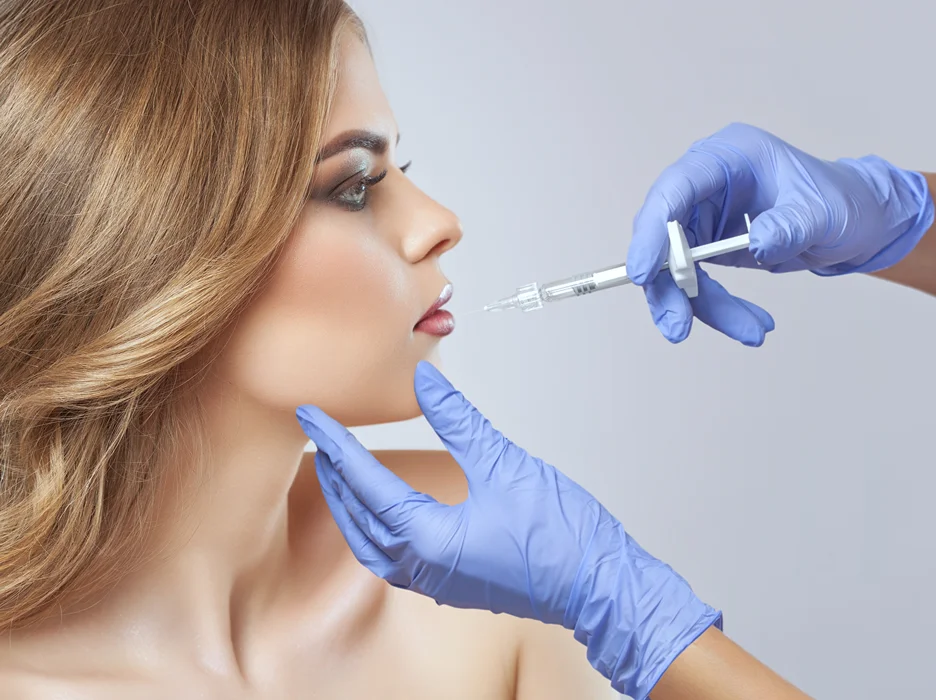
Lip filler pain typically peaks in the first 24-48 hours after injections, then gradually improves over 3-4 days. Most patients experience mild soreness or tenderness subsiding within 7-10 days. Notify your provider if more than mild pain persists beyond one week.
According to Dr. Soni, the lips become highly sensitive areas due to the dense concentration of nerve endings. Therefore, it is very common to experience some degree of mild pain, tenderness, or discomfort at the injection sites immediately after lip fillers.
The pain typically follows this timeline:
- Peaks within the first 24-48 hours as the anesthetic wears off.
- Gradually subsides over the next couple of days.
- Most patients describe the lip filler pain as a stinging or burning sensation, rating it around 3-5 on a scale of 10.
The upper lip tends to be more sensitive than the lower lip. While everyone’s pain tolerance varies, Dr. Soni finds that most patients have only minor throbbing, aching or soreness that starts improving 3-4 days after injections.
However, notify your provider if you have:
- More than mild pain
- Pain that worsens or persists beyond one week post-treatment.
This is not typical and may indicate an underlying issue needing evaluation. With proper aftercare, any lip filler discomfort should fully resolve within 7-10 days.
Is it Normal for Lip Filler to Hurt Weeks or Months After the Procedure?
Lip filler pain persisting beyond the typical 1-2 week recovery period would not be considered a normal response. Dr. Soni advises consulting a medical professional if discomfort lasts more than 2 weeks after your procedure.
However, he explains that some delayed pain, swelling, or lumps arising a few weeks or months after lip filler injections can occur in rare cases due to a delayed hypersensitivity reaction.
- A study found these late reactions appear to be due to a Type IV delayed hypersensitivity response.
- The manufacturing process and degradation products of different fillers may also influence the risks of delayed reactions. One patient reacted to one brand but not another injected at the same time.
Can Lip Filler Cause Tooth Pain?
Yes, lip fillers can cause tooth pain in some cases. The main reasons are swelling pressing on teeth, nerve irritation from superficial injections, and infection spread from the injection site.
- Swelling from the lip fillers can put pressure on the teeth and gums, especially with lower lip injections where swelling pushes up on the lower teeth. This discomfort usually resolves as swelling diminishes.
- The injection itself, if done too superficially, may hit branches of the nerve supplying the teeth, gums, lips, and face. This can cause referred pain to the teeth that is temporary.
- In rare cases, infection from the lip filler could spread to the gums or jaw and cause dental pain. This risk is higher if recent dental work was performed in the same area.
Antibiotics and treatment may be needed in such cases, but the FDA reports they tend to resolve on their own.
Can Lip Filler Cause Sinus or Nose Pain?
No, lip fillers themselves do not directly affect the sinuses or nasal structures. However, certain indirect effects may rarely cause sinus or nose pain symptoms in some cases.
Lip fillers vs. other dermal fillers:
Other dermal fillers injected in areas like the cheeks or under the eyes could obstruct mucus drainage if placed too close to the sinus cavities or cause excessive swelling. But this is less applicable to lip injections.
Rare risks
- Vascular Occlusion
As was observed in this study, vascular occlusion after filler injections around the nose and lips is extremely rare but could theoretically impact blood supply to nerves supplying sensation to the nose area. - Infection
Spread of infection or late-onset inflammation from fillers are rare possibilities that may put some pressure on sinus cavities.
What Can I Do to Relieve Pain After Lip Fillers?
Several over-the-counter remedies can help relieve pain after lip fillers. Applying ice packs, taking OTC pain relievers like acetaminophen or ibuprofen, using numbing gels before eating, and antihistamines to reduce swelling are some of the main options.
- Apply an ice pack or cold compress to your lips or jaw (if you’re experiencing jaw pain) for 10-15 minutes a few times per day. The cold helps reduce swelling and numb the pain. Make sure to wrap the ice in a towel.
- Take over-the-counter pain medication like Tylenol (acetaminophen) or Advil/Motrin (ibuprofen) as needed for relief. Avoid aspirin as it can increase bruising.
- Use an oral gel like Orabase or Anbesol to numb lips before eating. This makes eating more comfortable.
- Take an antihistamine like Benadryl to reduce swelling.
- Avoid irritants like spicy foods or extreme temperatures.
What Are Some Effective Painkillers I Can Take After Lip Filler Procedure?
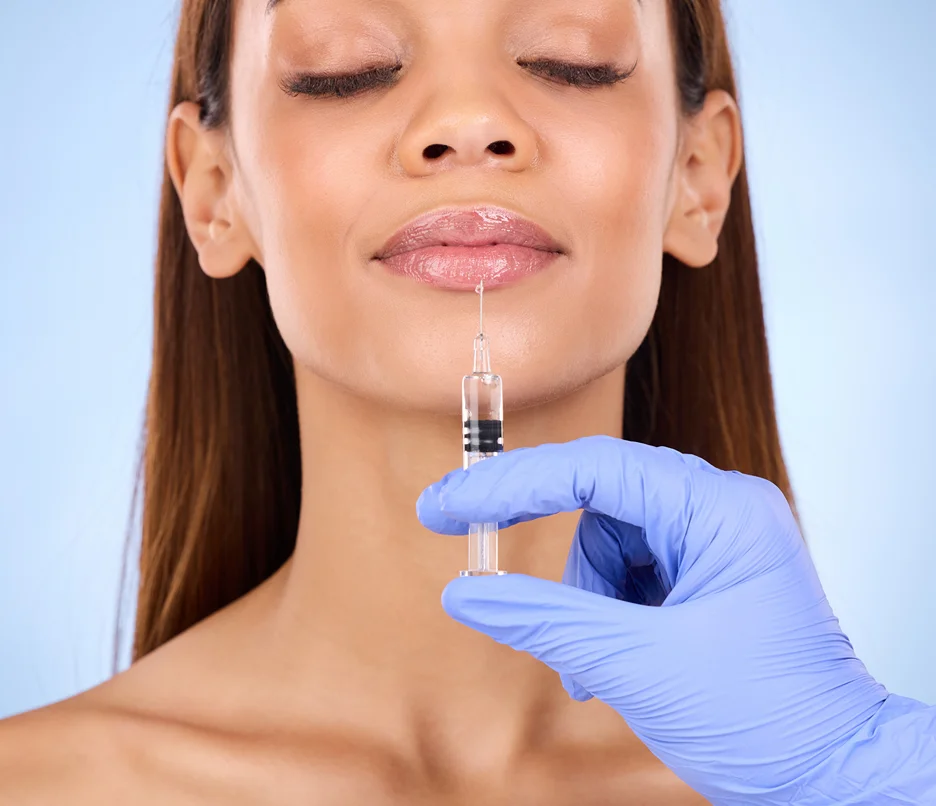
Dr. Soni recommends acetaminophen (Tylenol) as the primary over-the-counter oral pain reliever after lip filler injections, but NSAIDs, ibuprofen, and aspirin help as well.
- Acetaminophen is generally considered safe to help manage discomfort and swelling. It does not thin the blood, so it won’t increase bruising like other medications might.
- Non-steroidal anti-inflammatory drugs (NSAIDs) like ibuprofen (Advil/Motrin) or aspirin can also reduce pain and inflammation.
However, Dr. Soni advises caution with NSAIDs as they act as blood thinners, which can lead to increased bruising and swelling after lip fillers.
That recommendation is in line with the findings in the NCBI study titled “Minimizing Bruising Following Fillers and Other Cosmetic Injectables”.
If using an NSAID, ibuprofen is preferred over aspirin, but limit use to 1-2 days and avoid combining it with acetaminophen.
Follow dosage directions carefully and let your provider know if you experience any concerning or worsening side effects when taking oral pain relievers after your lip filler treatment.
Ethos Spa promises minimal pain and maximum gain – experience our painless lip enhancements for yourself. Contact us now!
